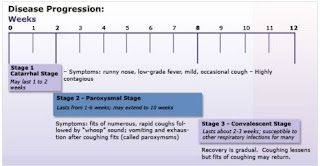By Melissa Patrick
Kentucky Health News
The Franklin County Health Department can now operate a needle exchange program in Frankfort, following a 3-2 vote by the Frankfort City Commission, Seth Littrell reports for The State Journal.
This brings the number of needle exchange programs in Kentucky to seven. Others are or will be in Louisville, Lexington, Pendleton County, Jessamine County and one that will serve both Carter and Elliott counties. They are designed to thwart the spread of HIV and hepatitis C, a disease that is commonly spread by intravenous drug use and is expensive to treat. Kentucky leads the nation in hepatitis C cases and suffers more than 1,000 drug overdose deaths a year.
Franklin County's program will operate one day a week from a mobile unit using various locations around the county, Health Director Judy Mattingly told the commission at its December meeting, Littrell reported. The program will supply enough clean needles for someone to get through a week and will offer counseling with each visit.
Under the state anti-heroin law passed in 2015, needle exchanges require local government approval. The Franklin County Fiscal Court gave its approval in October. The commission deadlocked 2-2 in December, with Commissioner Lynn Bowers abstaining for "more time to think" even though she seconded the motion to approve it.
This month, Bowers voted a "hesitant yes" but added a requirement that the commission receive updates on the program every six months, Littrell reports. She told health officials, "You all have recommended this, and you are the experts in the area and it’s for the public health."
The commissioners who voted no have voiced typical concerns, including a belief that its "immoral" to give needles to addicts, a belief that the issue belongs in the courts and a belief that needle exchanges enable drug users, despite evidence to the contrary. Commissioner John Sower, one of those who voted no, is running for mayor against incumbent Bill May, who voted yes.
Northern Kentucky struggles with the issue
The heroin problem is worst in Northern Kentucky, but Pendleton County is the only jurisdiction to approve a needle exchange.
The Florence City Council didn't say no to an exchange at its Jan. 19 meeting, but Mayor Diane E. Whalen said she wanted the approval of the Boone County Fiscal Court before allowing more discussion or taking a vote, Chris Mayhew reports for The Cincinnati Enquirer.
Mark Hansel reported in December for the Northern Kentucky Tribune that the fiscal court and the City of Florence "have no intention of approving needle exchange in their communities any time soon." The Northern Kentucky Health Department wants to operate exchanges at existing health centers in each county in Covington, Florence and Newport.
Mayhew also reported that the city of Williamstown in Grant County passed a resolution approving a needle exchange in August, but the department has not yet gotten approval from Grant County Fiscal Court, according to Emily Gresham Wherle, public information administrator for NKHD.
Mina "Mike" Kalfas, a family-medicine physician in Northern Kentucky, called for governments in the region to allow needle exchanges, reiterating in an Enquirer op-ed that the area has done nothing in the 10 months since the law passed.
"Since the law was passed, almost 800 people in Northern Kentucky have been diagnosed with hepatitis C and more than 100 have been diagnosed with hepatitis B," Kalfas wrote. "While a syringe access exchange program won’t eliminate these viruses, it can reduce their spread. When faced with outbreaks of communicable disease, public health officials look to interventions to stop the spread."
Kentucky Health News
The Franklin County Health Department can now operate a needle exchange program in Frankfort, following a 3-2 vote by the Frankfort City Commission, Seth Littrell reports for The State Journal.
This brings the number of needle exchange programs in Kentucky to seven. Others are or will be in Louisville, Lexington, Pendleton County, Jessamine County and one that will serve both Carter and Elliott counties. They are designed to thwart the spread of HIV and hepatitis C, a disease that is commonly spread by intravenous drug use and is expensive to treat. Kentucky leads the nation in hepatitis C cases and suffers more than 1,000 drug overdose deaths a year.
Franklin County's program will operate one day a week from a mobile unit using various locations around the county, Health Director Judy Mattingly told the commission at its December meeting, Littrell reported. The program will supply enough clean needles for someone to get through a week and will offer counseling with each visit.
Under the state anti-heroin law passed in 2015, needle exchanges require local government approval. The Franklin County Fiscal Court gave its approval in October. The commission deadlocked 2-2 in December, with Commissioner Lynn Bowers abstaining for "more time to think" even though she seconded the motion to approve it.
This month, Bowers voted a "hesitant yes" but added a requirement that the commission receive updates on the program every six months, Littrell reports. She told health officials, "You all have recommended this, and you are the experts in the area and it’s for the public health."
The commissioners who voted no have voiced typical concerns, including a belief that its "immoral" to give needles to addicts, a belief that the issue belongs in the courts and a belief that needle exchanges enable drug users, despite evidence to the contrary. Commissioner John Sower, one of those who voted no, is running for mayor against incumbent Bill May, who voted yes.
Northern Kentucky struggles with the issue
The heroin problem is worst in Northern Kentucky, but Pendleton County is the only jurisdiction to approve a needle exchange.
The Florence City Council didn't say no to an exchange at its Jan. 19 meeting, but Mayor Diane E. Whalen said she wanted the approval of the Boone County Fiscal Court before allowing more discussion or taking a vote, Chris Mayhew reports for The Cincinnati Enquirer.
Mark Hansel reported in December for the Northern Kentucky Tribune that the fiscal court and the City of Florence "have no intention of approving needle exchange in their communities any time soon." The Northern Kentucky Health Department wants to operate exchanges at existing health centers in each county in Covington, Florence and Newport.
Mayhew also reported that the city of Williamstown in Grant County passed a resolution approving a needle exchange in August, but the department has not yet gotten approval from Grant County Fiscal Court, according to Emily Gresham Wherle, public information administrator for NKHD.
Mina "Mike" Kalfas, a family-medicine physician in Northern Kentucky, called for governments in the region to allow needle exchanges, reiterating in an Enquirer op-ed that the area has done nothing in the 10 months since the law passed.
"Since the law was passed, almost 800 people in Northern Kentucky have been diagnosed with hepatitis C and more than 100 have been diagnosed with hepatitis B," Kalfas wrote. "While a syringe access exchange program won’t eliminate these viruses, it can reduce their spread. When faced with outbreaks of communicable disease, public health officials look to interventions to stop the spread."











